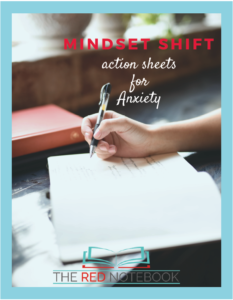April 25, 2018 Parenting a child with Dyslexia, ADHD and Anxiety
So, I basically had the Trifecta of children- two girls and a boy- each one very different from the other. My experience as a mom has stretched me in three different directions- one for each child.
I’ve had a wide spectrum of experiences in motherhood so far.
My first-born daughter, Alex, is dyslexic and has dealt with ADHD and severe anxiety since she was little. She has overcome and achieved so much despite all the obstacles she faces.
I’m fiercely proud of her
Below this post is an interview between me and Alex, where we talk about her dyslexia, ADHD and anxiety and how she learned to not just live, but thrive with these conditions.
We also touch on something super important when it comes to well adjusted human beings.
When I became a mom, I didn’t set out to develop some kind of parenting system, but from the very beginning, I dove deep into the research of child psychology so that I felt more prepared for each stage of childhood (did I mention I’m a control freak?).
I knew that if I wasn’t surprised, it was less likely that I’d blow up or take things really personally because hey, we all know that even the best of kids can be shitty now and then.
Something I noticed in all of my research and now, in my own family, is that kids need a parenting envelope.
Certainty, Unconditional Love, Guidance, Discipline and Safety. These parenting practices form an envelope that kids need to develop within. The envelope can’t be too tight or it will break (actually kids will bust out of it). If just one border is strong, but the rest are weak, then the envelope is loose and kids feel lost, aimless, unsafe, etc.
Many parents think about protecting or boosting their kid’s ego before they consider boosting their mindset. We have a lot of kids growing up and entering their college years who are extremely fragile.
Suicide rates, alcoholism and drug abuse are at all time highs.
It’s not because we don’t love our kids enough. In fact, Alex touches on that in this interview.
We love our kids a lot!
It’s that so many of us don’t understand human psychology and we don’t understand how to harness a powerful mindset- for ourselves or for our kiddos.
As the interview starts, Alex says that when she was faced with her disability, she just wanted to be normal. Any kid who is deemed ‘exceptional’ or ‘disabled’, who falls outside the bell curve of their peers can feel like an outsider and it’s painful.
If you feel like an outsider or if you’re struggling with parenting a child with unique capabilities, you’re not alone. I know how it stings watching your kid cry. I also know how it feels to be the only advocate for your children while their schools fail them.
Our Creator made us “perfectly imperfect” and He loves us perfectly. In fact, He’s the perfect parent.
I don’t think we have to be perfect parents to be effective. I leave perfection to Jesus.
However, I do think we can change our mindset and empower our kids to handle whatever comes their way
Our children are precious gifts. They’re watching us. They’re listening. They’re absorbing…all of it.
Even when it seems like they couldn’t care less about what we say or what we do.
Our actions, reactions, self-talk, mindset- the visible and invisible of our lives- they see it all.
As guardians and caregivers of children, WE are forming our future with everything we do and we better take that damn seriously.
I feel strongly that a blend of faith and science can move our society out of this downward spiral we’re finding ourselves in. It all starts at home.
We’ve created a printable journal insert that you can use or give to a loved one who struggles with anxiety. It’s right below the audio clip.
I hope this interview with Alex encourages you!
Audio Time Stamps:
58seconds: Alex talks about dealing with dyslexia and her physical reactions to various situations. It cause a lot of anxiety in her life from a very young age.
2:19: Alex talks about shat can teachers do differently if they have a dyslexic child in their class.
3:52: Alex talks about what anxiety feels like and how she processes it.
7:23: Alex discusses being hyper-aware of her surroundings and breaking unhealthy thought loops.
9:52: Alex expands on her techniquest to handle anxiety and the problem our society has with prescribing medications unnecessarily.
17:22: Alex talks about the role parenting plays in helping a child with disabilities turn them into a strength instead of a weakness.




Sorry, the comment form is closed at this time.